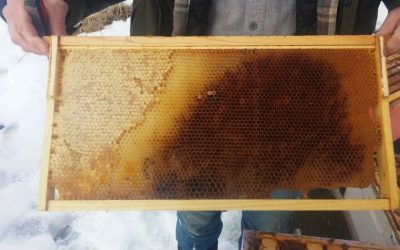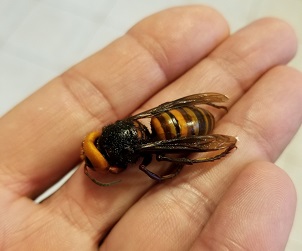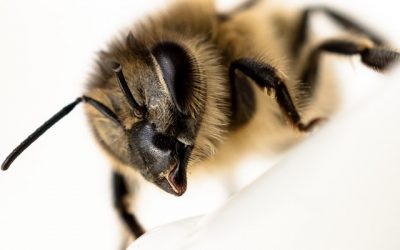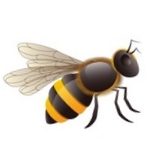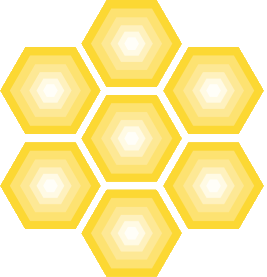
Nanaimo Beekeepers Club
Why did my Honey Bees die?
Learning to identify a common cause of winter death in northern climates.
by Megan Milbrath, Michigan State University Extension, 2018
Asian Giant Hornet – Looking Back, Looking Forward
In 2020, the BC Ministry of Agriculture typically had a focussed monitoring approach to the Asian Giant Hornet (AGH) on several levels.
For 2021, the Ministry will implement a surveillance program again and possibly with radio tagging technology.
Submitting Samples for Disease Identification
Laboratory diagnostic services are free for BC beekeepers. Test results can only be as good as the quality of the submitted sample. Don’t submit samples with large amounts of debris and foreign materials. Samples should be submitted as follows: Brood Cell Samples•...
BC Provincial Apiculture Beekeeper Resources
The BC Ministry of Agriculture, Food, and Fisheries (Ministry) Apiculture branch provides a number of resources and services to beekeepers.
Meetings
The Nanaimo Beekeepers Club meets on the fourth Wednesday of every month (excluding July, August, and December) at 7PM at Ralph Nilson Building (Building Number 210) - Room 105 (ground floor) , 900 Fifth St, Nanaimo (link to campus map)
At this time we are also offering to attend the same meeting via zoom as well for anyone that would prefer to attend virtually.
As a member you will receive the invites to the meetings via email.
If you not currently a member but would like to join one of our meetings please email us and we be happy to send you an invitation
Beekeepers’ Corner FREE monthly
Bee Furniture and the Nanaimo Beekeepers Club are happy to announce that we are continuing our FREE monthly Zoom meetings aimed towards new to novice beekeepers. Your host for this series, Mark Schilling, is a certified Bee Master and instructor.
Club members will recieve the details via email, for non members please contact us via email or watch for the event to be posted on our Facebook page
The Beekeepers’ Corner meetings will take place on the second Tuesday evening of each month at 7pm via Zoom.
Upcoming Events
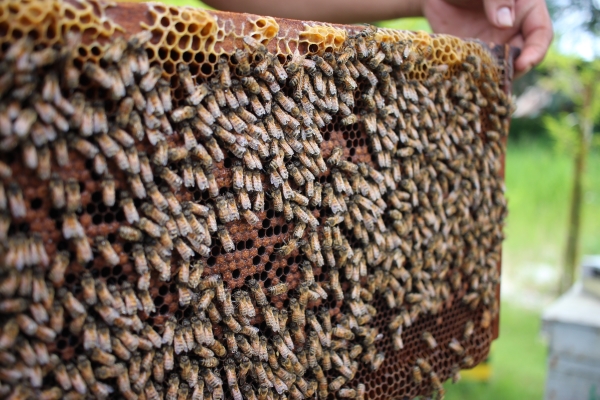
Club Meeting May 22nd - 7 pm
Club Meeting June 26th - 7 pm
Club Meeting September 25th - 7 pm
Swarm Control
We are happy to come and remove a swarm of bees safely and for FREE
If you see a swarm of bees, time is of the essence as they don’t stay in one place for very long.
Please call us at 778-788-2879 or on Facebook Messenger
Some of the information we need when you contact us:
- Address/location of the swarm
- A phone number you can be contacted by the person who will be coming to collect the bee swarm.
- Where is the swarm?
- How high of the ground is it?
- How big is the cluster of bees (the size of a baseball, a football, a soccer ball, a basketball or bigger)?
- Do you know approximately how long the swarm has been there?
We do not deal with any insects other than honey bees. ie – paper wasps or bumble bees
From one make two
Swarming is the process by which a new honey bee colony is formed when the queen bee leaves the colony with a large group of worker bees.
When to expect them
Swarming is mainly a spring phenomenon, but occasional swarms can happen throughout the season.
Is it dangerous?
They are focused on finding a new nest, not on attacking. That said, it is important to keep your distance from swarming bees, because if the bees feel threatened, then it is possible they will sting.
What to do?
Do not attempt to move or destroy the swarm. Such attempts could seriously back fire.
Contact us and we will remove the swarm safely and ensure they find an appropriate new home.
Here is some more information about swarming bees:
Buzzaboutbees.net

Want to become a Beekeeper?
What you always wanted to know about Bees
Am I allowed to have bees?
Nanaimo’s bylaw allows for up to 3 colonies on any parcel of land under 1 acre, more on larger properties.
Check out the bylaws on www.nanaimo.ca
Will I get stung?
Honeybees are vegetarian, so unlike wasps or hornets, they have no interest in you or your picnic. They will only sting in defense. But all that said, yes, as a beekeeper you probably will get stung.
How much work is it?
More than a cat, but less than a dog. Once an apiary is set up, most beekeepers spend 5 to 30 minutes checking their colonies twice a month between March and October. Most of the work is done by the bees, they even clean up if you take some honey.
How much does it cost?
Like many hobbies, beekeeping has initial startup expenses for equipment and bees, but beyond that, cost is minimal. Most people spend between $250 – $750 for equipment, bees and training. Feeling handy? build your own hive! Plans are available online.
How much honey will i get?
Unfortunately, this is an impossible question to answer. It depends entirely on the weather, your hive, and its location. As much as 75lb per hive, or as little as nothing.
Any Questions?
Please get in touch
Contact Us
For issues with swarms, and beekeeping or bee club information email or contact us via Facebook

